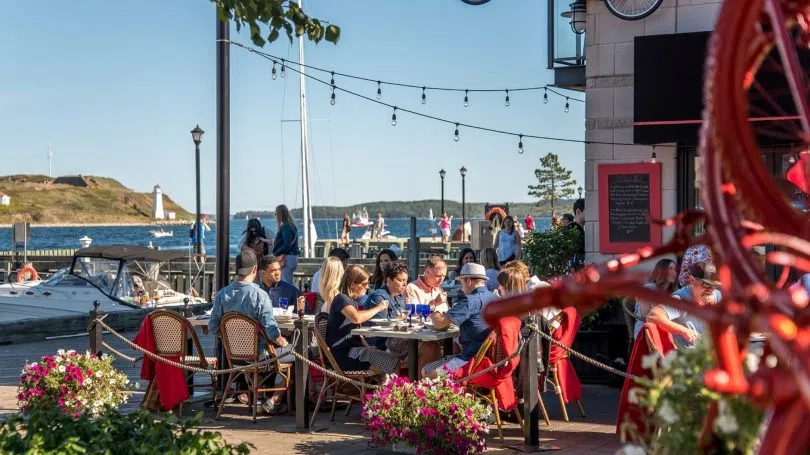
Image: Discover Halifax/Facebook
COVID-19 has hit the restaurant and hospitality industry particularly hard in 2020. Restaurants across the country have been struggling to stay open, let alone make a profit. To make matters worse, the slow winter season is just around the corner. It should come to little surprise that Restaurants Canada is warning that 40 per cent of eateries in Atlantic Canada could be shuttered by March of 2021.
According to Luc Erjavec, Restaurants Canada Vice President for Atlantic Canada, 10 per cent of restaurants have already closed during the pandemic. On top of that, 68 per cent of the restaurants still open are operating at a loss, and 20 per cent are breaking even. These numbers were compiled by Restaurants Canada earlier this summer.
“And going into winter, with patios closing, we’re going to need continued support in order to keep employing Atlantic Canadians. We’re so important to every single community,” he said.
Erjavec is hoping the recent throne speech by Governor General Julie Payette will signal more support from the federal government. The government, according to the speech, will support businesses by extending the Canada Emergency Wage Subsidy until next summer, expanding the Canada Emergency Business Account, and improving the business credit availability program.
“We were really pleased to see support from the throne speech [Wednesday],” said Erjavec. “The government understands that the hospitality industry is in trouble and will need continued support.”
“They talked about extending the wage subsidy further and the loan program further, because that was two of our industry asks…There would be few restaurants open today without these subsidies and supports.”
But, if the current programs were enough to save the restaurant industry, 68 per cent of establishments wouldn’t be losing money. Obviously, more can be done. Erjavec points to the much-criticized federal rent subsidy program as one area where improvements can be made.
Currently, commercial landlords can get 50 per cent of rent covered by the federal government, with the tenant only paying 25 per cent, and the other 25 per cent forgiven by the landlord. However, the landlord first must agree to lower rent by 75 per cent. Many have pointed out that the tenants don’t benefit from the program unless the landlord chooses to apply, and many landlords have chosen not to apply.
“The thing they missed talking about in the throne speech is rent,” said Erjavec. “the rent program has only been semi-successful. I think there are ways to put money directly in the hands of the tenants instead of the landlords.”
Erjavec is reminding people that, even though restaurants have been reopened for now for months, it has been impossible to return to normal. Due to social distancing rules, many restaurants are operating with merely half capacity. Erjavec thinks it may be time to think about loosening some restrictions in Atlantic Canada.
“The capacity issue is a key concern,” said Erjavec. “I think, particularly in Atlantic Canada, where we have very few cases (of COVID-19); we have the Atlantic bubble, may it’s time that we can start looking at reducing some of these restrictions within the bubble in order to help us operate more normally.”
“Should there be an issue with (COVID) hotspots or whatever; we address those on a regional basis.”
Derek Montague is a reporter with Huddle, an Acadia Broadcasting content partner.






